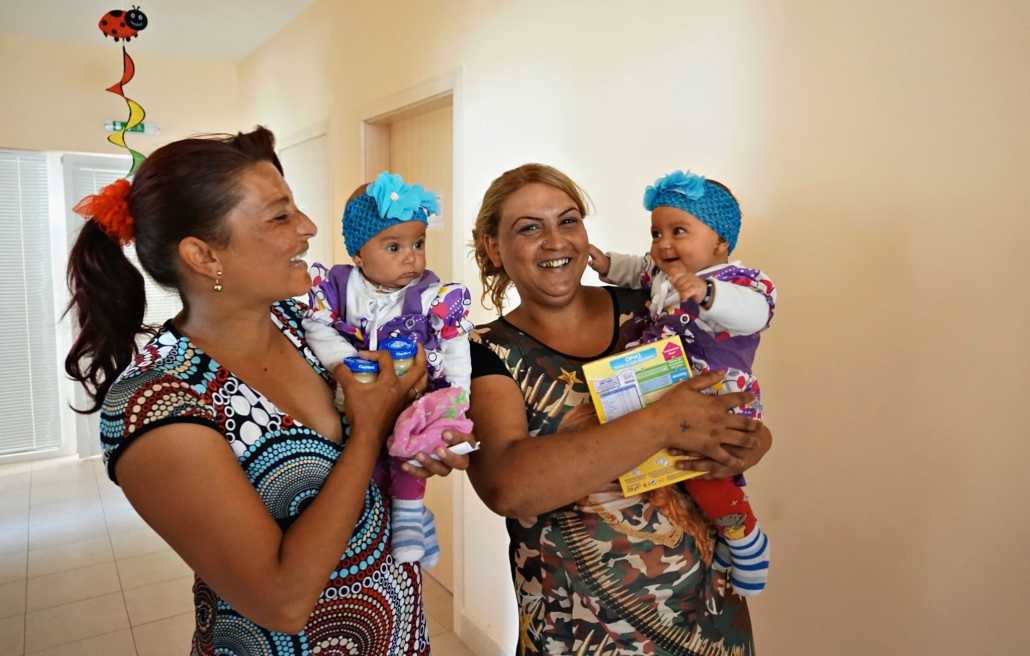Child Poverty in Bulgaria
 Bulgaria is a beautiful country located on the Balkan Peninsula in Southeast Europe, known for its rich history and wonderful beaches bordering the Black Sea. Also known about Bulgaria is that it is one of the poorest countries in Europe. In 2022, food price inflation hit 22%, affecting low-income Bulgarian households disproportionately. Young people are also heavily impacted as the child poverty rate in Bulgaria stands at 22.9%.
Bulgaria is a beautiful country located on the Balkan Peninsula in Southeast Europe, known for its rich history and wonderful beaches bordering the Black Sea. Also known about Bulgaria is that it is one of the poorest countries in Europe. In 2022, food price inflation hit 22%, affecting low-income Bulgarian households disproportionately. Young people are also heavily impacted as the child poverty rate in Bulgaria stands at 22.9%.
While securing equality for Bulgarian children is an ongoing journey, there have been some positive steps in the right direction.
Ongoing Efforts
In 2021, Bulgaria enacted the Bulgaria Child Guarantee National Action Plan (NAP). Specifically, this plan places a strong emphasis on early education. Children whose parents obtain a low level of education are 10 times more likely to be living in poverty — emphasizing the importance of ending a generational lack of access to education.
This plan also touches on the idea of health care aid as a way to help children living in poverty, placing a specific emphasis on children who suffer from disabilities and chronic illnesses. Nutrition is also an issue for underprivileged families, and with the NAP, children are able to receive free lunches and parents are able to receive access to mental health care. The housing strategy supports access to housing for migrant children and emphasizes the importance of providing support for immigrant children’s easy adaptation. Lastly, the NAP placed a focus on the development of foster care systems and aid to young parents.
Mission Without Borders
Yamur faced financial hardship growing up, as her father had to leave school at a young age to support their family. However, with the assistance of Mission Without Borders’ sponsorship program, Yamur and her family received the financial support they needed to access education.
As a result of this support, Yamur was able to continue her education and pursue her dream of becoming a teacher. Despite the economic challenges her family faced, she did not have to marry at a young age and could focus on working toward her life goals.
By helping children in Bulgaria access education, organizations like Mission Without Borders create opportunities for more success stories like Yamur’s to emerge.
Unbound
Unbound is a program that has invited people from around the world to support each other through sponsorship. By sponsoring a child living in Bulgaria, they have more to provide for their family and moreover are less obligated to spend school time working to provide and more time learning for their future. The beauty of the program is that it does not only sponsor the lives of underprivileged children but also helps to foster friendships between people across the world. When donating, 91.4% of proceeds go directly to the sponsorship program, 3.8% goes to administration and 4.8% goes to fundraising. In 2021, Unbound raised nearly $2 million in support of sponsorship for low-income children and families across the globe.
Looking Ahead
While Bulgaria boasts natural beauty, its children endure hardships. One key avenue for reform is improving access to early education, as breaking the cycle of low-education families is crucial for reducing the risk of poverty. Organizations like Unbound and Mission Without Borders offer vital financial support and opportunities to Bulgarian children, helping bridge the gap and offer brighter prospects.
– Aubrey Acord
Photo: Flickr
